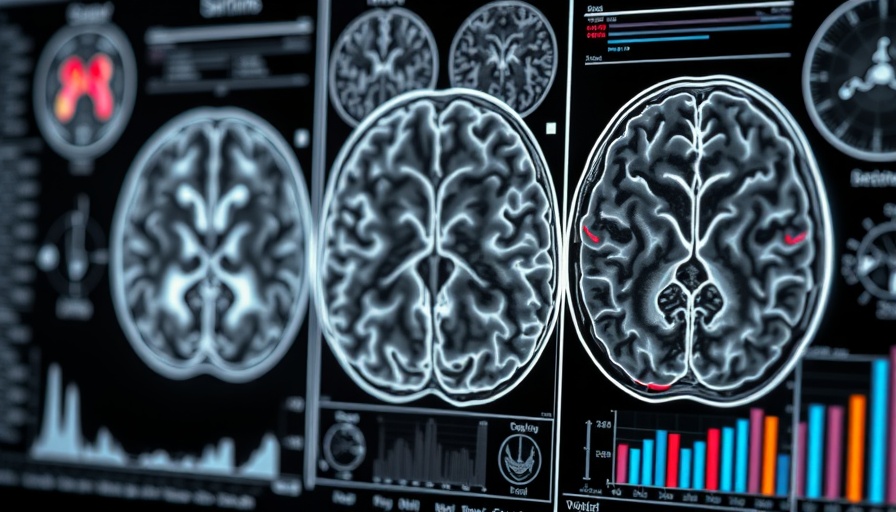
Understanding the Role of RTP801 in Alzheimer's Disease
Research originating from the University of Barcelona has unveiled significant molecular mechanisms related to cognitive decline in Alzheimer's disease, the leading cause of dementia. This groundbreaking study highlights the RTP801 protein's decisive role in astrocytes, a type of brain cell crucial for nervous system health. By silencing RTP801 protein expression in animal models, researchers observed profound effects on cognitive functions, such as spatial memory and brain connectivity, thus potentially paving the way for innovative therapeutic targets aimed at battling this debilitating disease.
The Mechanisms Behind Alzheimer’s Progression
Alzheimer’s disease is characterized by the accumulation of β-amyloid plaques outside neurons and hyperphosphorylated tau protein inside them. The RTP801 protein, associated with neuroinflammation and neurotoxicity, plays a significant role in the advancement of this condition. In prior studies, it was established that RTP801 is linked with neuronal dysfunction, but its specific impact on astrocytes—once thought to be mere structural support—has only recently been highlighted.
The Importance of Astrocytes in Brain Health
Astrocytes are increasingly recognized as vital players in maintaining brain function; they regulate the balance between excitatory and inhibitory signals in neuronal networks. Their involvement in neuroimmune responses further emphasizes their significance. The newly discovered critical role of RTP801 within astrocytes suggests that alterations in this protein may lead to dysfunctional neural circuits, adversely affecting cognitive abilities—a hallmark of Alzheimer’s progression.
Gene Therapy and Its Potential Implications
Utilizing gene therapy techniques to investigate the impacts of RTP801 silencing has brought new insights into cognitive functions affected by Alzheimer’s disease. By manipulating the expression of RTP801 in the dorsal hippocampus of test models, the research team could discern changes in brain connectivity tied to cognitive performance. Such findings underscore the potential for gene therapy as a vehicle for developing treatments targeting specific molecular pathways in neurodegenerative diseases.
Community Health Implications and Initiatives
As the healthcare community strives for optimal health and wellness, understanding the biological underpinnings of conditions like Alzheimer’s is essential. Communities, especially in areas like San Antonio, should prioritize health initiatives that promote awareness of cognitive health, making use of wellness centers and resources focused on prevention. Supportive services can range from informational workshops to community health programs dedicated to maintaining neurological health, enhancing residents’ quality of life.
Exploring Future Therapeutic Avenues
The findings surrounding RTP801 open doors for future research into targeted therapies for Alzheimer’s disease. Exploring this protein's role may lead to the development of drugs aimed at modifying neuroinflammation and preserving cognitive functions. Identifying new therapeutic targets empowers clinicians and researchers to approach treatment of Alzheimer’s in innovative ways, ultimately providing hope to millions affected by dementia. The exploration of such therapeutic targets is crucial as the average lifespan increases and more people grapple with neurodegenerative conditions.
Emphasizing the Need for Ongoing Research
This study signals more than just immediate scientific interest; it reflects a pressing need for continued exploration in neuroscience. A deeper understanding of proteins like RTP801 and their dual role in both supportive cellular functions and disease mechanisms is imperative. As we move forward in our pursuit of health and wellness—especially for aging populations—we can produce strategies that prioritize not only physical health but also cognitive vitality and overall well-being.
In an age where longevity is increasingly achievable, the quest for brain health becomes paramount. By engaging with local health resources and staying informed about emerging research, communities can foster a more vibrant, health-focused society. Together, let’s shape a future where the cognitive decline related to Alzheimer’s becomes a challenge of the past.
 Add Row
Add Row  Add
Add 




 Add Row
Add Row  Add
Add 


Write A Comment